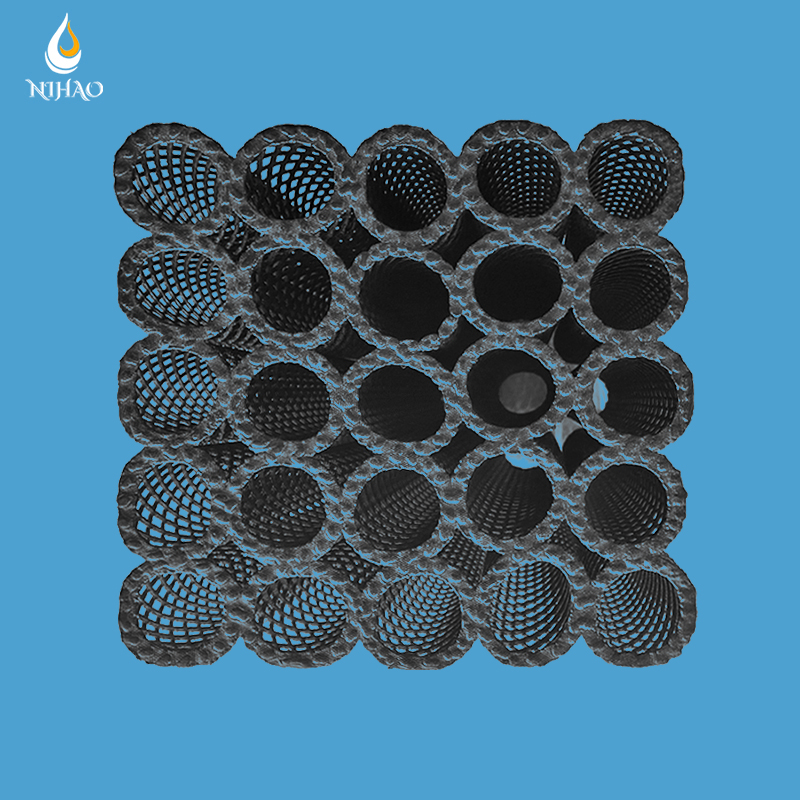 +86-15267462807
+86-15267462807
In the water treatment industry, where precision and performance are paramount, selecting the right filtration media can make all the difference. While traditional filtration methods have long been the standard, newer innovations like Bio Block Media are transforming the landscape.
Traditional Filtration: Traditional methods, often employing granular materials like sand and gravel, primarily focus on physical filtration. Particles and impurities are mechanically removed as water passes through the media.
Bio Block Media: Bio Block Media operates on a fundamentally different principle, harnessing the power of biology. It comprises structured blocks with a high surface area, facilitating the attachment and proliferation of beneficial microorganisms. These microorganisms metabolize organic matter, turning contaminants into harmless byproducts.
Traditional Filtration: While traditional methods excel at removing larger particles, they sometimes struggle with microorganisms, dissolved contaminants, and complex organic compounds. This limitation can be particularly pronounced in the treatment of industrial and municipal wastewater.
Bio Block Media: Extensive studies have shown Bio Block Media's prowess in breaking down organic pollutants. The high microbial diversity and activity on the media surface result in exceptional treatment efficiency, making it particularly suitable for challenging wastewater streams laden with biological contaminants.
Traditional Filtration: Traditional systems often demand larger land footprints due to the need for expansive settling tanks and multiple stages to achieve comprehensive treatment.
Bio Block Media: A technological marvel in space optimization, Bio Block Media systems can reduce the land and infrastructure requirements significantly. This compact design is especially beneficial for retrofitting existing treatment facilities and for installations in areas with space constraints.
Traditional Filtration: Regular backwashing, replacement of filter media, and maintenance of mechanical components are routine in traditional filtration systems. These tasks can translate into increased operational costs and downtime.
Bio Block Media: The biological self-regulation of Bio Block Media systems minimizes the need for frequent maintenance. The robust microbial communities established on the media surface adapt to changing conditions, ensuring a longer operational lifespan and reduced maintenance costs over time.
Traditional Filtration: Conventional filtration often consumes more energy, primarily due to the mechanical processes involved in maintaining filter integrity and the potential use of chemical additives.
Bio Block Media: Bio Block Media epitomizes sustainability by relying on natural biological processes. It significantly reduces the carbon footprint of treatment plants, aligning perfectly with the global push toward eco-friendly, energy-efficient solutions.
Traditional Filtration: Traditional methods, though effective in many scenarios, may have limitations when dealing with diverse contaminants and challenging wastewater compositions.
Bio Block Media: Versatility is a hallmark of Bio Block Media. Its adaptability extends to treating a wide spectrum of water sources and contaminants, from industrial effluents to municipal sewage, making it a go-to solution for a myriad of water treatment challenges.